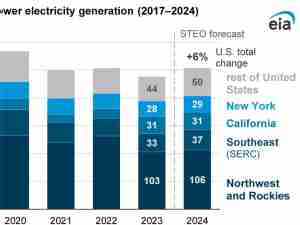U.S. crude export prospects expand niche for oilfield stabilizers
By: Reuters | Sep 09 2014 at 12:07 AM
Orders have surged for a type of oilfield equipment primarily used for to make a light variety of crude safe for pipelines, after a federal ruling signaled that the specialized units also offered a workaround for companies eager to export oil from the U.S. shale boom.
The units, known as stabilizers, process that type of crude, known as condensate, just enough to qualify it for export as a refined product, allowing oil producers to ship it abroad without violating a decades-old ban.
Dozens of companies that build stabilizers, ranging from small private firms to pipeline and logistics leader Kinder Morgan Energy Partners, stand to benefit from new orders.
Oil producers in condensate-heavy shale crude plays like the Eagle Ford and the western Permian Basin in Texas also could fetch better condensate prices if exported, as U.S. refiners have limited demand for it.
Stabilizers are simpler and cheaper than more complex splitters and refineries, which process oil into gasoline, diesel, naphtha and other products.
A new 10,000 bpd stabilizer and 21 storage tanks in Live Oak County, Texas, had a combined $100 million price tag, while a 50,000 bpd splitter costs about $250 million. A special unit at a refinery to shave light ends from crude runs up to $400 million.
More of these so-called condensate stabilizers are being constructed in Texas, where output and coastal export capability is snowballing.
“I have seen a significant increase in inquiries and demand for stabilizers, pretty much all the sizes we build,” said Danny Kennedy, president of Joule Processing in Houston, a privately-held engineering firm that builds oilfield processing and treating infrastrucuture, including stabilizers.
That interest stems from U.S. Department of Commerce approvals that allowed producer Pioneer Natural Resources and pipeline and logistics company Enterprise Products Partners to export condensate, a very light form of crude oil, after it has been minimally processed in a stabilizer.
Bill Bowers, vice president of production equipment for Valerus, said he expects more interest in its stabilizers from midstream companies, as more seek clarity from the Commerce Department on the two approvals.
A stabilizer is a relatively simple tower that removes volatile natural gas liquids and other contaminants from crude and condensate so they meet pipeline specifications.
Before the Commerce rulings emerged, the oil industry believed more distillation was necessary to turn crude into an exportable product, which meant processing in a splitter or refinery.
Dozens of stabilizers dot the Eagle Ford, ranging in capacity from 500 barrels per day to the largest, Plains All American’s 80,000 bpd Gardendale stabilizer that will expand to 120,000 bpd next year. Others are in the Permian Basin in West Texas and Ohio’s Utica shale.
Agencies that track U.S. oil data do not keep track of the number of operating stabilizers, because the equipment is considered standard.
Joule, Kennedy’s relatively small company, has about six stabilizers on the books to build this year - compared with two a year ago - with more to come in the early planning stages.
Kinder Morgan sees opportunity for its division that builds stabilizers, including at least one of Pioneer’s.
Chief Executive Rich Kinder told analysts this summer that the Pioneer ruling showed the company’s stabilizers “fit the bill” to qualify condensate for export.
That did not change Kinder Morgan’s plan to start up a $370 million pair of 50,000-bpd condensate splitters at its Houston Ship Channel complex later this year, because BP Plc has a long-term contract to buy all the output. The same goes for splitter deals by Magellan Midstream Partners and Targa Resources
However, Martin Midstream Partners has veered from splitter talk with a customer to a “conceptual stabilization unit to process condensate to the government’s exportable standard” through the Corpus Christi market, the company’s CEO Joel McCreery, told analysts in July.
McCreery said the company’s focus was changing to building stabilizers instead of splitters because of the Pioneer and Enterprise deals.
Confusion still lingers over what distinguishes condensate from other light crudes, and what the timeline will be for more export approvals.
In addition, it is not yet clear that the rush to order stabilizers from companies like Joule and Valerus is significant enough to fan the backlash from refiners who are resisting the export push by oil producers..








